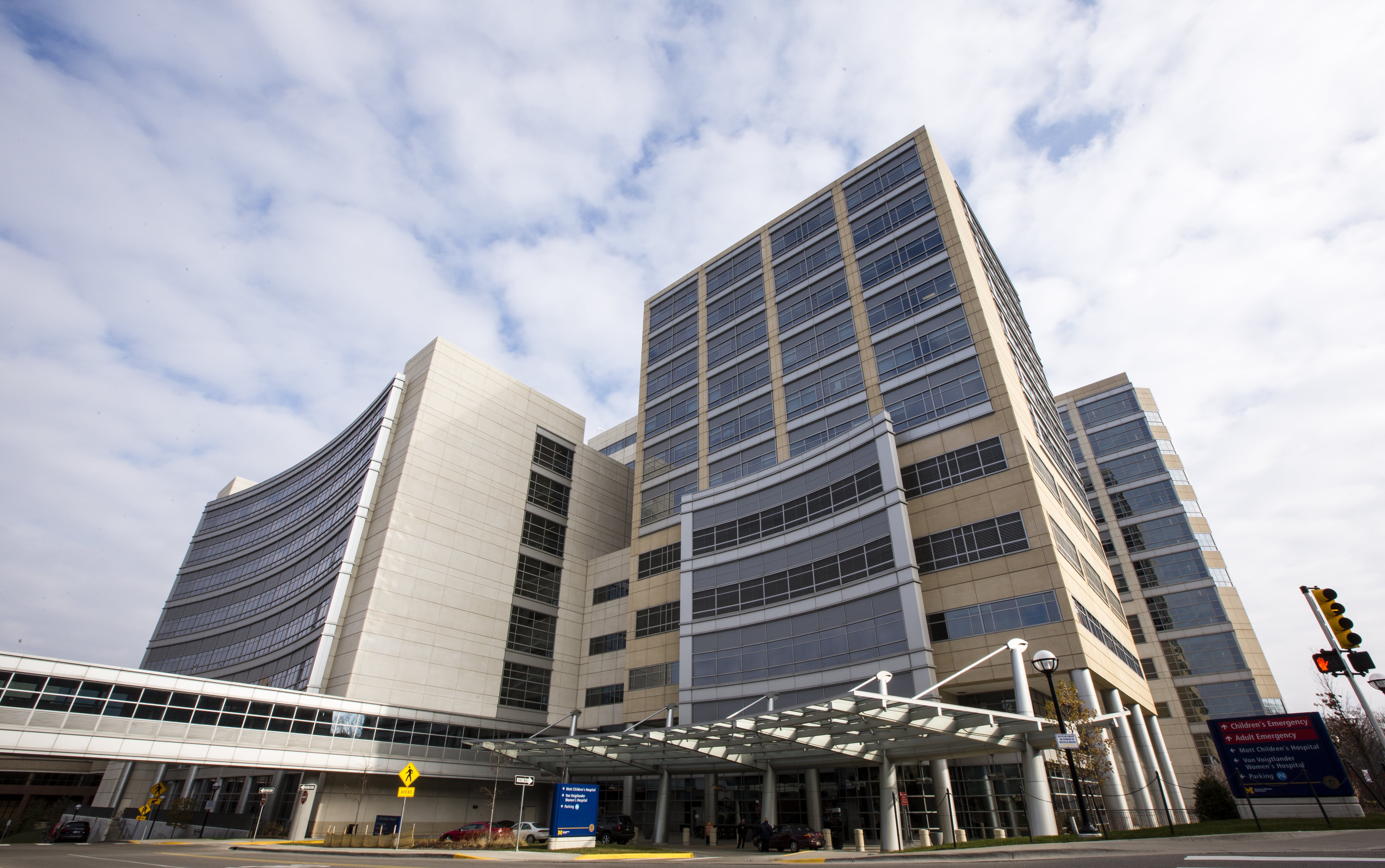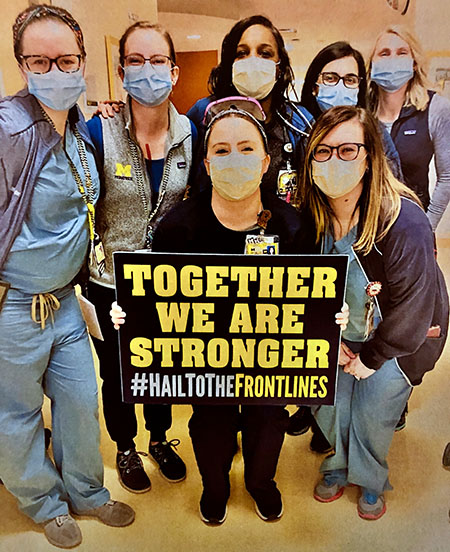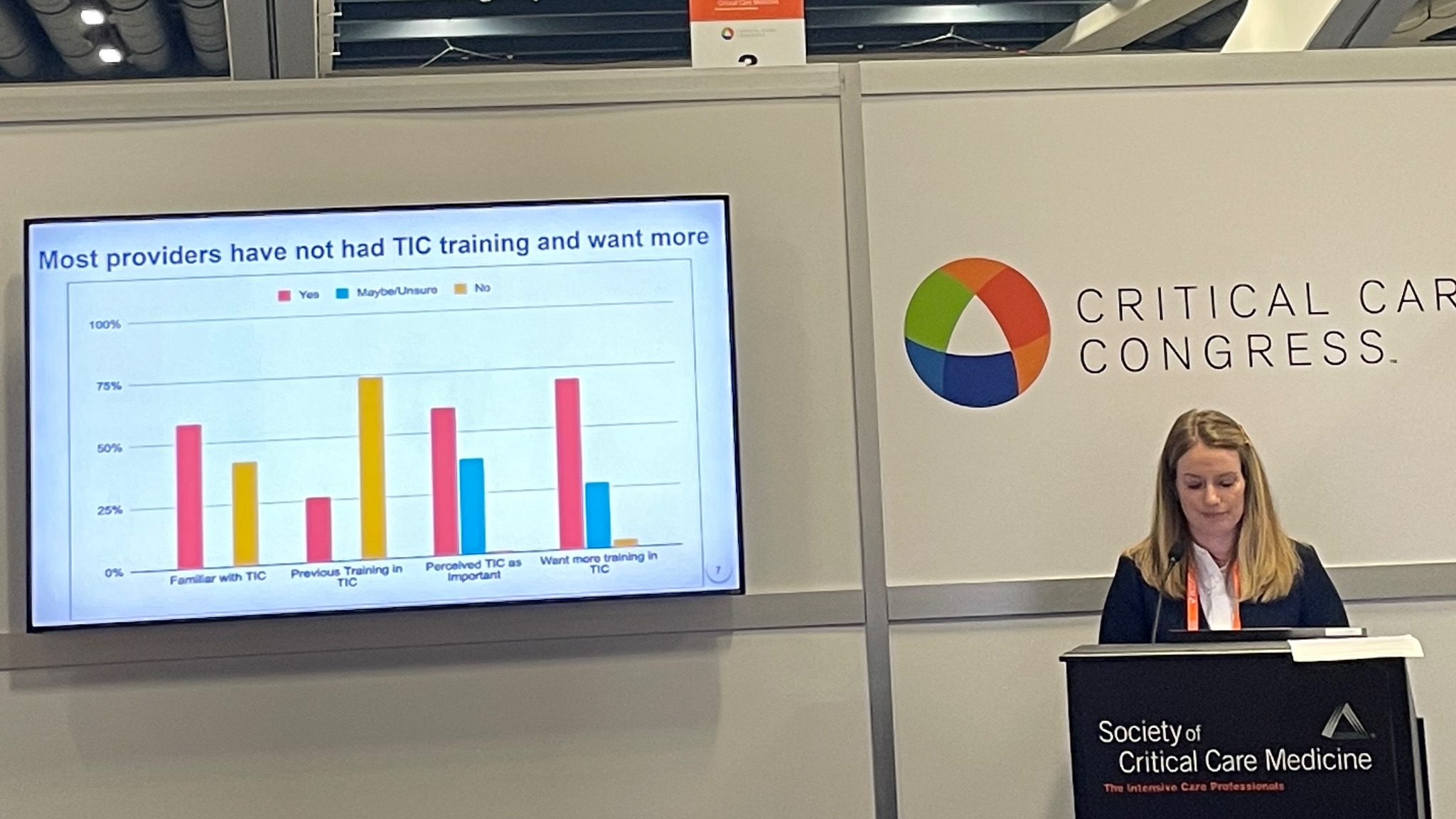 The University of Michigan Pediatric Critical Care Fellowship is an ACGME-accredited program that offers comprehensive training in pediatric critical care and whose aim is to train the future leaders of pediatric critical care.
The University of Michigan Pediatric Critical Care Fellowship is an ACGME-accredited program that offers comprehensive training in pediatric critical care and whose aim is to train the future leaders of pediatric critical care.
Each fellow's clinical experience is designed to meet their educational and career goals. Fellows rotate through the pediatric ICU and the pediatric cardiothoracic ICU with the opportunity to gain additional experience in palliative care and with our ECMO specialists.
The clinical experience is complemented by instruction in research design and methods, leading to completion of unique scholarly projects.
About Our Fellowship
C.S. Mott Children's Hospital is a quaternary children's hospital and is recognized as one of the leading pediatric hospitals in the country. We provide the full spectrum of pediatric primary and subspecialty care. The majority of fellow training occurs in the Pediatric Intensive Care Unit (PICU). The PICU is a 30-bed, state-of-the-art unit providing care to a wide range of critically ill and injured children. The unit serves patients from general medicine, general surgery, transplantation, trauma, neurosurgery, otolaryngology, orthopedics, and plastic surgery, among others.

In addition, the unit also enjoys a national reputation for expert care in extracorporeal membrane oxygenation (ECMO). Additional training occurs in the Pediatric Cardiothoracic Unit (PCTU). The PCTU is a 20-bed, state-of-the-art unit that provides care for patients with a full spectrum of cardiovascular disease across all ages. Fellows also have access to a wide range of mentors both internal and external to the division to pursue scholarly interests spanning clinical, basic science, translational, and educational research, quality improvement and patient safety.
The University of Michigan offers highly competitive salaries and tremendous benefits to our residents/fellows. An overview of salary, benefits and employment eligibility is available on the GME Office website, under "Prospective Residents/Fellows."
Fellowship Components
Clinical Care
Fellows provide minute-to-minute critical care to patients admitted to our 30-bed PICU as well as responding to deteriorating patients throughout the hospital, via the rapid response team.
Education
A dynamic education program with traditional didactics, interactive board review and case discussions, high fidelity case-based and procedural simulation, point-of-care ultrasound education, morbidity & mortality review, a new quality improvement curriculum, multidisciplinary conferences with our colleagues from Emergency Medicine, Neurology, Pathology and Otolaryngology, to name a few, and endless opportunities for fellows to teach medical students, residents, nurse practitioners and nursing staff.
Research
Comprising half of the time of the fellowship, fellows are mentored to conduct clinical, translational, basic science, quality improvement, or educational projects. Fellows benefit from outstanding mentors both within and external to our division to ensure fellows receive the support and expertise to succeed in their scholarly activity. Fellows are encouraged and supported to present their work at national meetings.

Many fellows have completed additional training through programs such as the Medical Education Scholars Program (MESP), the Community of Medical Educators in Training (CoMet) program, the Bioethics Fellowship program, and the Patient Safety and Quality Leadership Scholars (PASQUAL) program, among others. Prior graduates have gone on to successfully obtain NIH funding at both the K and R levels.add caption here
Looking to Do Your Fellowship in Pediatrics? Think Michigan Medicine!



